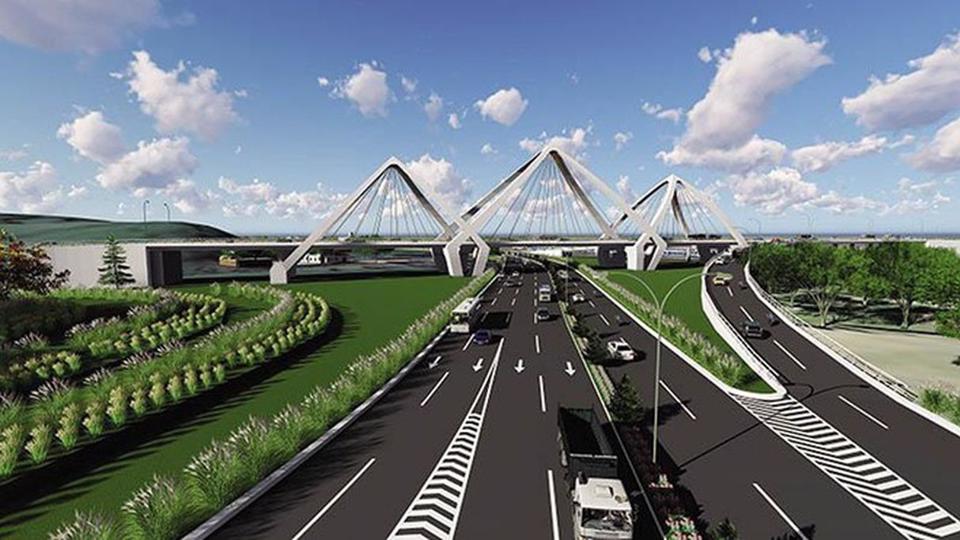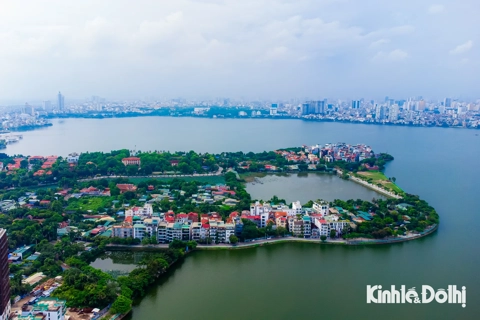Ring Road No.4 project on track to start construction in June
The project, with an investment capital of VND86 trillion (US$3.7 billion), is expected to be operational by 2028.
The No.4 Ring Road project preparation process is on track, ensuring that construction can start in June as planned, according to the Hanoi Transport Construction Investment Project Management Council.
| Design of a section of Ring road No.4. |
The schedule is in line with a recent plan released by Hanoi People's Committee Chairman Tran Sy Thanh on the No.4 Ring Road, which sets the target for the project to be completed by 2026 and to be open to traffic in early 2027.
To meet this deadline, Hanoi plans to hand over 70% of the cleared land to contractors in June, and complete the entire clearance process in December.
The project, with a total length of 112.8 kilometers and a combined area of 1,341 hectares, would pass through Hanoi (58.2 kilometers), Hung Yen (19.3 kilometers), and Bac Ninh (25.6 kilometers). The bypass road runs from the Noi Bai - Lao Cai highway (Thanh Xuan Commune, Soc Son District), to the Noi Bai - Ha Long highway (Que Vo District, Bac Ninh).
The authorities have divided the project costing a total of VND86 trillion (US$3.64 billion) into seven parts. This includes three components for compensation and support for households that will be relocated during the project, three for building urban roads as part of the Ring road (funded through public funds), and one for building an expressway through a public-private partnership (PPP) mechanism.
Once completed, Ring road No.4 is expected to bolster provincial connectivity between Hanoi and northern provinces in the capital area, contributing to the socio-economic development of the entire northern region with the capital serving as the main driving force for growth.
| The project has an estimated cost of VND85.8 trillion ($3.7 billion), with VND41.8 trillion ($1.8 billion) from the State budget to be disbursed from 2021 to 2025. Hanoi will contribute VND22.47 trillion ($967.2 million), Hung Yen VND1 trillion ($43 million), and Bac Ninh VND2 trillion ($86 million) from their local budgets. Over the next five years, the project will receive additional funding of VND14.5 trillion ($624.2 million) with Hanoi contributing VND4 trillion ($172 million), Hung Yen VND505 billion ($21.7 million), and Bac Ninh VND1.16 trillion ($50 million). The private sector is expected to provide VND29.4 trillion ($1.26 billion) in funding. |













